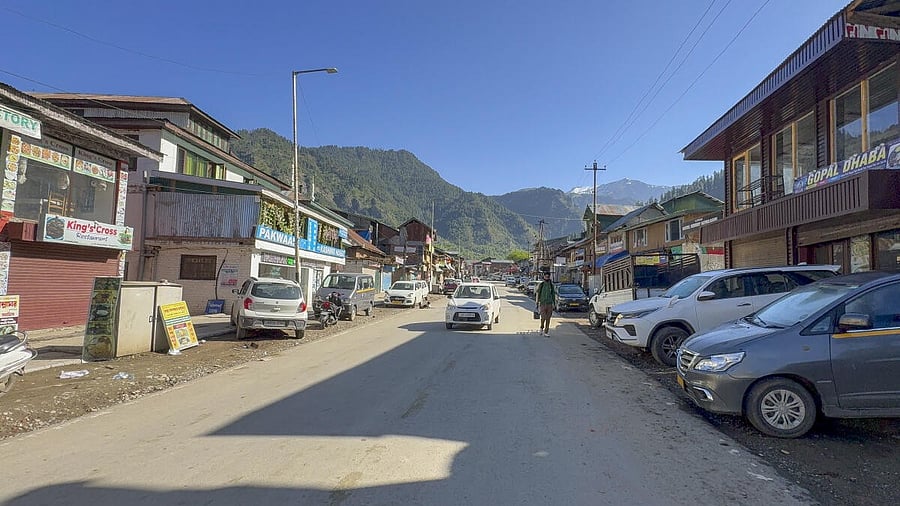
A near deserted tourist town of Pahalgam, Anantnag district, J&K.
Credit: PTI photo
Mumbai: Those who witnessed the ghastly Pahalgam terrorist attack need urgent psychological support so that the intrusive memories are quarantined lest they cause long term mental disability, said Dr Harish Shetty, an eminent Mumbai-based psychiatrist with a vast experience in disaster mental health.
“Similarly, those on the border areas who have lost their loved ones due to Pakistani shelling need similar care.
This group remains invisible as little has been said or discussed about them . Mental health treatment is a right for all those affected directly,” said Dr Shetty.
“Besides, those who have experienced vicarious trauma via watching news or listening to first hand or fictitious accounts should also seek help,” he said.
“Trauma imprinting or hyperarousal and hypervigilance are known phenomena following a disaster. Chanakya's Arthashashtra also describes this and exhorts people to confront it,” Dr Shetty pointed out.
“In the background of the Pahalgam attacks and the subsequent reprisal this condition gains importance and needs to be addressed. This can affect individuals , groups and even the armed forces, The memories of the event and the audiovisual reels , witnessed or conjured and stored can erupt if not taken care off. They are time bombs as the visual is accompanied by powerful feelings of fear, rage and sadness,” the veteran consultant said.
“Individuals who have watched the events at Pahalgam and the visuals of the short skirmish between the two countries may react during specific situations…if they may see weapons in the hands of the police or see victims lying on the road as a consequence of any accident, they may have a severe panic attack.
The heart may race fast, breathlessness may be experienced and irrationally the individual may just scoot or be emotionally paralysed on the spot. This may repeat if they experience flashbacks in their minds or when they witness events mimicking the earlier trauma even in small ways,” he said.
“Apart from fear , anger and rage may also be seen ! A small provocation such as waving the Pakistani flag or trampling the Indian Flag may lead to lynching by groups and communal riots,” he said.
“Mind can be emotionally hijacked and men and women may behave like savages from the stone age ! Here, ’ Amydagaloid ' a small button shaped part of the brain that was useful during the mediaeval times to escape from danger springs into action bypassing the discerning thinking brain The lynching of people believed to be cow smugglers or cow protectors in the recent past was a consequence of terror imprinting ! Armed forces may also succumb and overreact to minor stimuli on both sides though I admit that our side has been very mindful and debriefing exercises are conducted regularly with them,” said Dr Shetty.